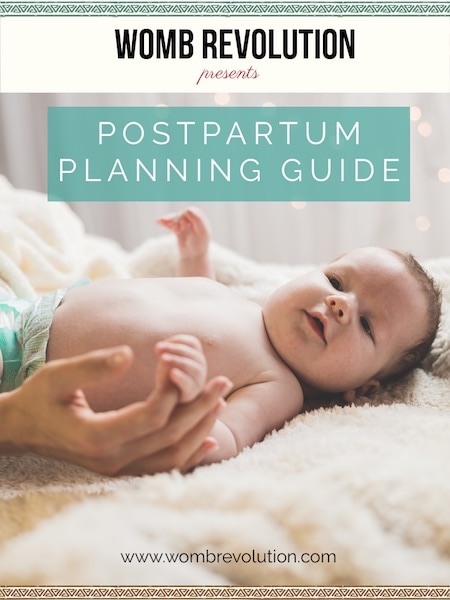Are you interested on blogging for Womb Revolution? Contact us!
Disclaimer: This blog post is not intended to dissuade anyone from using hormonal birth control (as each person’s needs are unique), but rather to empower all people to make the best possible decisions they can for themselves.
| My name is Michele Drake, and I am a reproductive health educator and advocate. I am particularly focused on female fertility and the menstrual cycle. I also work as a facilitator for an organization called The Fifth Vital Sign whose mission is to empower women with unbiased information about their bodies so that individuals can make the best possible choices about their health. |
I was surprised to learn--at twenty-five-years-old--that my birth control implant works, in part, by suppressing ovulation. This may not seem significant, so let me elaborate. I had been using hormonal birth control for ten years, five of which were with the use of an implant. I am college educated and went to public school in New York State since kindergarten. Why did it take a decade of hormonal contraceptive use before I learned how and why it works? How had I missed this?
| “I am college educated and went to public school in New York State since kindergarten. Why did it take a decade of hormonal contraceptive use before I learned how and why it works? How had I missed this?” |
After suffering several seemingly random ailments for a number of years, a friend of mine helped me connect the dots. I realized that all of my symptoms were listed side effects of my birth control. At the time of my first implant insertion, my doctor asked me if I had questions about the implant. I didn’t know what I should ask, so I didn’t ask anything. Each year at my annual, I complained about the same list of symptoms, but never did my doctor help me connect the dots. When I eventually requested she remove it because of the side effects, I was belittled and my request laughed at. I had to find a new provider to remove it. My doctor wasn’t listening to me. It felt like she had purposely mislead me, which made me extremely angry. One of the major goals of accessible birth control is for women to be able to make decisions about what is best for their own bodies, an opportunity which I felt was stolen from me.
| “At the time of my first implant insertion, my doctor asked me if I had questions about the implant. I didn’t know what I should ask, so I didn’t ask anything.” |
WHAT IS INFORMED CONSENT?
How had I used a birth control device for five years before understanding how it works? The answer is informed consent--or lack thereof. Informed consent means that when your doctor/nurse/midwife discloses to you all of the possible outcomes and consequences of their recommended medical intervention, you should be given the opportunity to decide what is best for you. Informed consent is a fundamental component of our medical system. It gives providers the responsibility to educate patients, and it gives patients the ability to make informed decisions about their own bodies.
When I asked my doctor about birth control options, the biochemistry involved in their functions, and many of the potential side effects were never mentioned. I never asked those questions because I didn’t know I needed to, and I assumed it is the responsibility of the healthcare provider to explain those items without being asked--which it is by the way!
WHY DON'T WE ALWAYS HAVE INFORMED CONSENT?
The doctor/patient relationship is very complicated due to a perceived power disparity. Patients often--even subconsciously--see doctors as figures of authority. If you’ve ever found yourself stuck in the waiting room for an hour while you wait for your doctor to meet with you, or if you’ve felt vulnerable having a conversation with someone wearing a white lab coat while you are in an open-backed gown, or if you’ve ever felt rushed through an appointment, then you understand that it’s easy to feel intimidated by your doctor.
In my experience, the doctor/patient power disparity was most apparent when my doctor didn’t listen to me dismissed my concerns, as if they were silly. For other women who I have worked with, this power disparity became even more evident when their doctors used confusing medical jargon or made them feel intimidated intellectually, and as if they were complaining too much.
WHAT CAN WE DO ABOUT IT?
To ensure you have informed consent, you must be critical of the care you receive. You should know your rights as a patient and enforce them.
- It is your right to ask lots of questions.
- It is your right to ask for a second opinion.
- It is your right to ask your doctor about their success/ failure rate in the recommended medical intervention.
- It is your right to have full access to all of your medical records.
- It is your right to disagree with your doctor.
- It is your right to refuse treatment.
- Doctors are extremely knowledgeable and highly trained, so it’s a good idea to consider their recommendations, but it’s within your right to use your doctor as a resource and not follow their recommendations.
| “Doctors are extremely knowledgeable and highly trained, so it’s a good idea to consider their recommendations, but it’s within your right to use your doctor as a resource and not follow their recommendations.” |
- What are the benefits, risks and alternatives of the proposed intervention / treatment?
- What is the risk of not taking any treatment at all?
- How urgent is this decision: Is this something that needs to be decided in the next few minutes? Next few hours? Next few days?
- What are the risks of holding off on intervention at this point?
Remember that you know your body better than anyone else does. You can and should advocate for yourself. Good health care providers appreciate patients who are partners in their own care. Most importantly, we deserve informed consent. We deserve physicians who provide sufficient information, which allows us to make informed decisions regarding our healthcare. We are entitled to make decisions about our own bodies.
| Michele Drake (pronouns: she/her) is a reproductive health educator and advocate with a special interest in supporting women in their contraceptive choices. After witnessing many of her friends and family struggle to find their ideal contraceptive method, balance their hormones, or achieve pregnancy, she was inspired to empower people with knowledge about their own bodies so that they may make informed choices about their health. |




